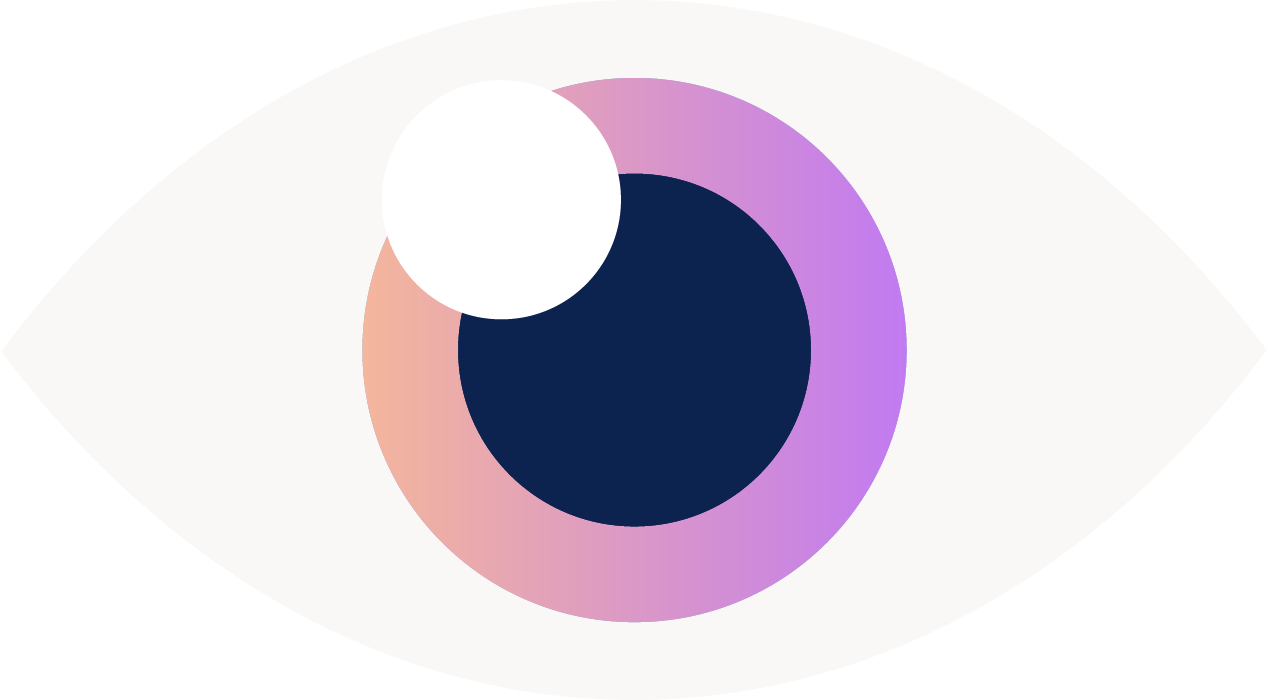Eye Mythbusters
I thought I'd devote a post to those common myths you always hear about the eyes. I get questions about one of these at least once a week. It's hard to do something contrary to the old wives tales you grew up hearing, and sometimes I even have to stop myself from believing something which I know is not true! My oldest son loves the show Mythbusters and I have to admit, it's pretty cool, hence the Mythbuster approach to eye myths (without any of the experimentation!).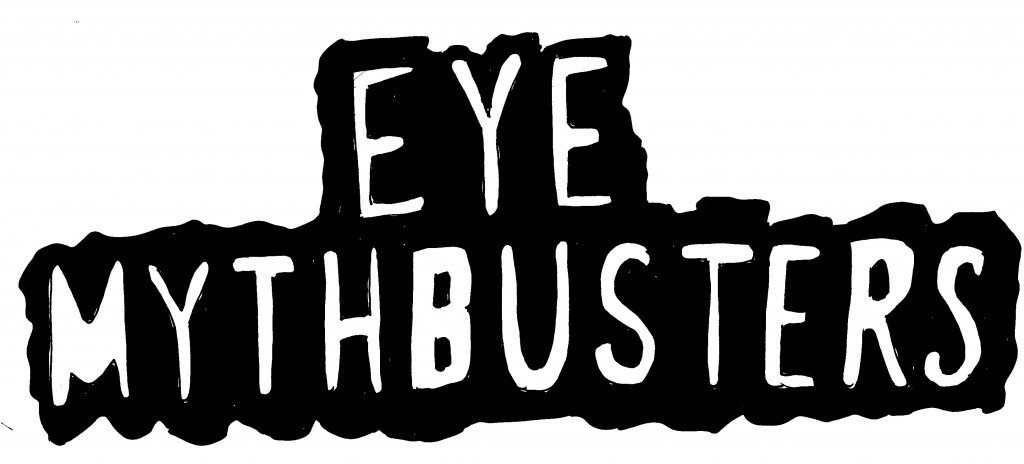 So, let's get started. Common Eye Myths - which ones are true and which ones are not!
So, let's get started. Common Eye Myths - which ones are true and which ones are not!
1. It's bad to read in the dark.
This is how my son loves to read at night. All the lights in the room are off and he uses this little bedside Ikea light.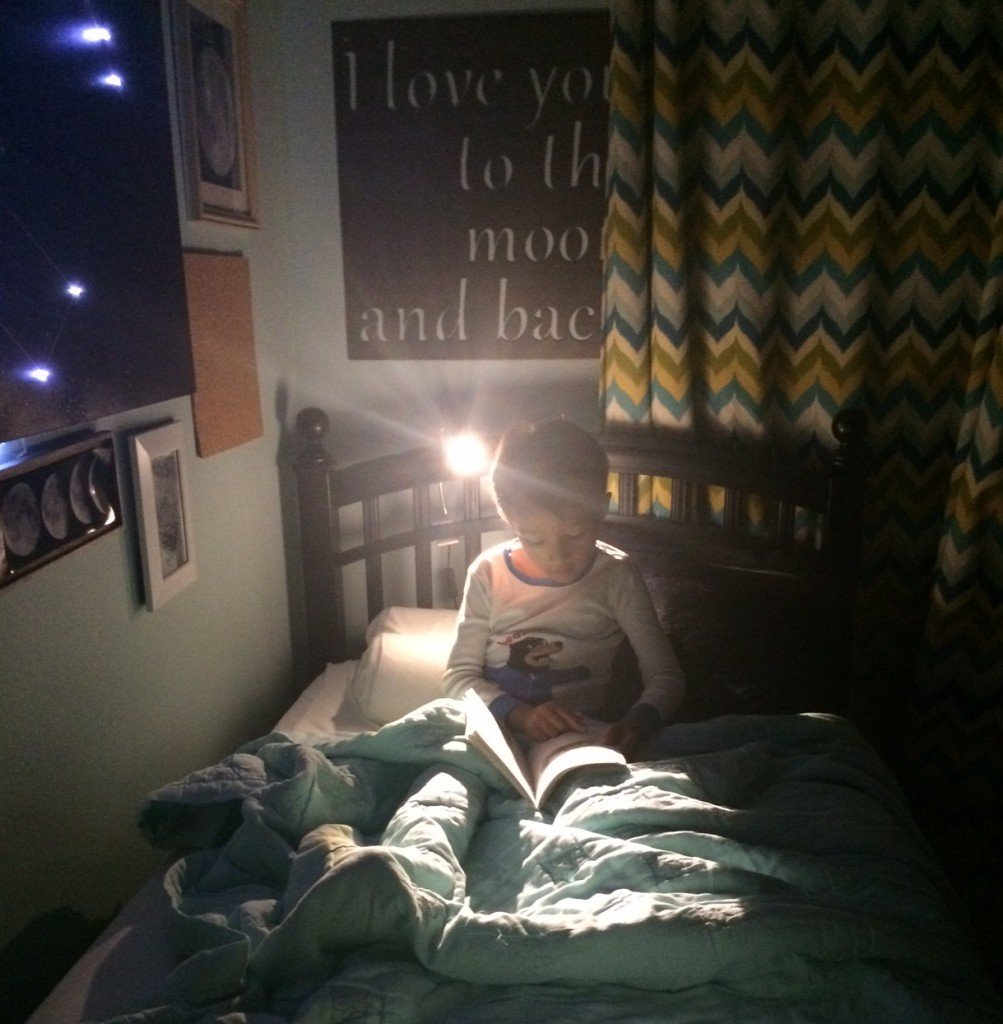 It actually is not dangerous to read in the dark. It doesn't make you need glasses sooner. It doesn't tire the eyes out. There was one study which showed that reading in the dark for adults did affect their comprehension and reading times. So, it stands to reason, for young readers, it's best to use high contrast reading material to make it easier for them to read faster and understand what they're reading. But, again, not unsafe for they eyes.
It actually is not dangerous to read in the dark. It doesn't make you need glasses sooner. It doesn't tire the eyes out. There was one study which showed that reading in the dark for adults did affect their comprehension and reading times. So, it stands to reason, for young readers, it's best to use high contrast reading material to make it easier for them to read faster and understand what they're reading. But, again, not unsafe for they eyes.
MYTH BUSTED
2. Babies will outgrow cross eyes.
Very rarely, babies can have wandering or crossed eyes when they are born. Just like they are learning how to use their arms and legs, they have to develop their eye muscles and vision. However, by the time babies are 4-6 months old, they should be able to use their eyes to focus on faces and toys up close with straight eyes. It's actually common for babies younger than 6 months old to have eyes that wander out. The problem that often happens, is that many babies have real crossed eyes, which do not improve with time, as in my patient below who needed surgery.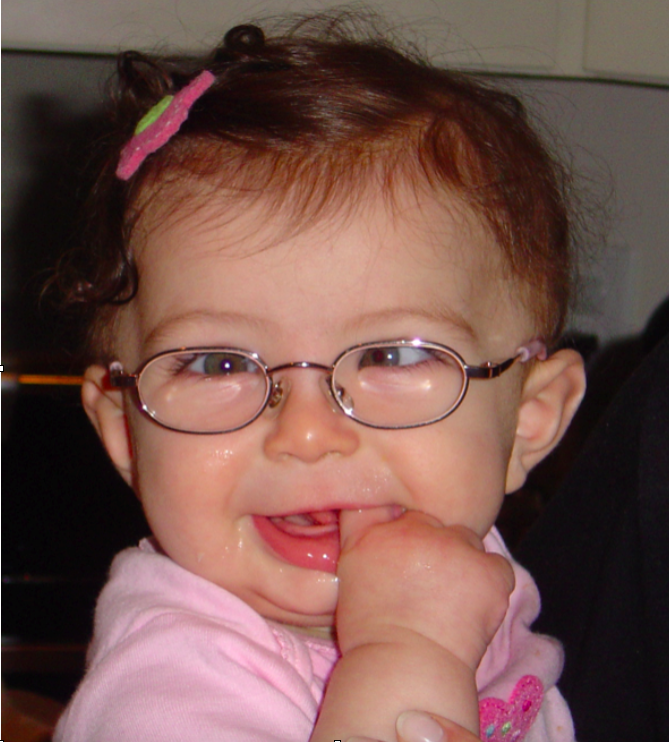 Sometimes, the parents, and even the pediatricians, falsely reassure the parents that this kind of eye crossing will improve. So, they wait to come to see a pediatric ophthalmologist. This kind of eye crossing, esotropia or strabismus, does not improve with time. And, actually when babies have esotropia, it is best to operate sooner rather than later. The sooner your perform surgery, the better the child's change to maintain or restore their depth perception. Strabismus surgery in infants is not a cosmetic procedure. There is a lot of misinformation about strabismus surgery. I remember I was operating on the little baby above (she was 7 months old) and even the Harvard employed anesthesiologist at Boston Children's was questioning the mom as to why she was having surgery at such a young age! Thankfully, the mom was extremely well educated on the topic and could set the anesthesiologist straight.
Sometimes, the parents, and even the pediatricians, falsely reassure the parents that this kind of eye crossing will improve. So, they wait to come to see a pediatric ophthalmologist. This kind of eye crossing, esotropia or strabismus, does not improve with time. And, actually when babies have esotropia, it is best to operate sooner rather than later. The sooner your perform surgery, the better the child's change to maintain or restore their depth perception. Strabismus surgery in infants is not a cosmetic procedure. There is a lot of misinformation about strabismus surgery. I remember I was operating on the little baby above (she was 7 months old) and even the Harvard employed anesthesiologist at Boston Children's was questioning the mom as to why she was having surgery at such a young age! Thankfully, the mom was extremely well educated on the topic and could set the anesthesiologist straight.
MYTH CONFIRMED (with a caveat)
3. Sitting too close to the TV is bad for the eyes
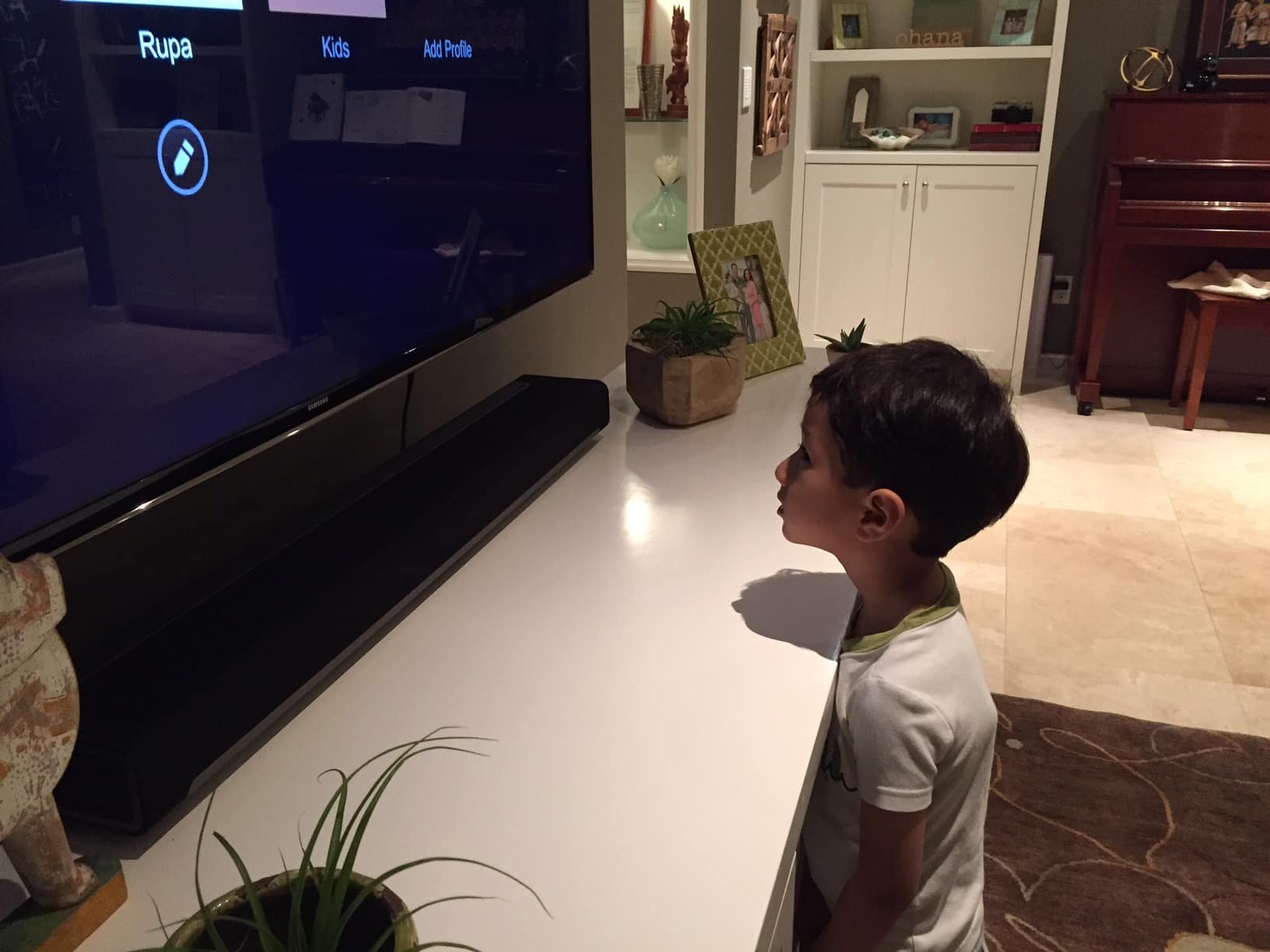 Maybe about once a week, I get a parent in my office who hopefully asks "It's bad to sit close to the TV, right?" looking meaningfully at Little John in the exam chair. Except, that it really isn't. So, I truthfully answer that sitting close to the TV is not harmful to the eyes or the vision. No studies have found that it makes kids need glasses faster. But, your child might be sitting close to the TV because they cannot see it. It might, in fact, be a sign of nearsightedness in a child. Your children's eyes have the ability to focus much better than an adult, so for them, sitting (or standing) close to the TV is comfortable. I do always add that the American Academy of Pediatrics does recommend restricting screen time (TV, iPad, iPhone, etc) to a maximum of 2 hours a day and only for children older than 2 years of age.
Maybe about once a week, I get a parent in my office who hopefully asks "It's bad to sit close to the TV, right?" looking meaningfully at Little John in the exam chair. Except, that it really isn't. So, I truthfully answer that sitting close to the TV is not harmful to the eyes or the vision. No studies have found that it makes kids need glasses faster. But, your child might be sitting close to the TV because they cannot see it. It might, in fact, be a sign of nearsightedness in a child. Your children's eyes have the ability to focus much better than an adult, so for them, sitting (or standing) close to the TV is comfortable. I do always add that the American Academy of Pediatrics does recommend restricting screen time (TV, iPad, iPhone, etc) to a maximum of 2 hours a day and only for children older than 2 years of age.
MYTH: BUSTED
4. A cataract needs to be "ripe" before it can be operated upon.
Using words like "ripe" is an old school way of describing the severity of the cataracts. Older ophthalmologists wouldn't operate on a cataract until the cataract was large enough. But, bear in mind, this was back when you had to be admitted to the hospital for cataract surgery and use sand bags to immobilize your head post-operatively. Cataract surgery was a big deal. Nowadays, no one uses that terminology, because with lasers an new intraocular lenses, cataract surgery doesn't carry the same risks as it did 30 or 40 years ago. So, really, it comes down to if your cataracts are interfering with your ability to do things you love - drive at night, reading, painting, etc. If so, then it might be time for you to talk to your ophthalmologist about cataract surgery. There's no hard and fast line about when your cataracts are ready to be removed. It's all about how they affect your activities of daily living.
MYTH: BUSTED
5. Wearing glasses will make your eyes dependent on them.
This is the one I am currently struggling with. As I approach 40, I find it hard to read my iPhone in low lighting conditions. I have a pair of very low prescription reading glasses (+0.50 sphere). But, even though they make my quickbooks accounting much easier, I am hesitant to wear them. Why you may ask? I love the look of them - in fact, growing up not needing glasses ever, I always wanted glasses. I adore my Fendis. But, it's for the simple fact that even if it's way deep down, I still succumb to the notion that if I start to wear the reading glasses more regularly, my vision will deteriorate. That is just not true. My need for reading glasses will increase every year whether or not I wear glasses now. Same is true for kids. A lot of parents worry about this dependency as well. Children's need for glasses has nothing to do with whether or not they were their glasses. Genetics, anatomy of the eye are what's important.
MYTH: BUSTED
6. Crossing your eyes make them stay that way.
An oldie, but a goodie. Nope - crossing your eyes will not make them stay that way. So, kids, cross away to your heart's content. Esotropia, or eye crossing, has many different causes. People can be born with it (congenital esotropia), it can be secondary to being really farsighted (accommodative esotropia), from a blind eye (sensory esotropia), or even from a nerve palsy. But, not because you do it over and over again.
Nope - crossing your eyes will not make them stay that way. So, kids, cross away to your heart's content. Esotropia, or eye crossing, has many different causes. People can be born with it (congenital esotropia), it can be secondary to being really farsighted (accommodative esotropia), from a blind eye (sensory esotropia), or even from a nerve palsy. But, not because you do it over and over again.
MYTH: BUSTED
7. Carrots help prevent you from needing glasses.
I love carrots. I ate a ton of them growing up. It was my after school snack with French salad dressing. And, I don't wear glasses (well I didn't for the first 39 years of my life). But, though carrots are rich in Vitamin A, that doesn't help you from being nearsighted, farsighted or having astigmatism. It is always a good idea to eat a diet rich in vitamins and antioxidants for the overall health of your eyes. Click here for my blog post about anti-oxidants and your eyes (with recipes)
It is always a good idea to eat a diet rich in vitamins and antioxidants for the overall health of your eyes. Click here for my blog post about anti-oxidants and your eyes (with recipes)
MYTH: BUSTED
Hope you enjoyed our fun mythbusters post!
